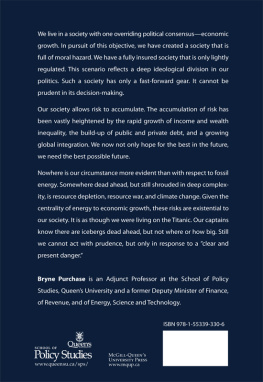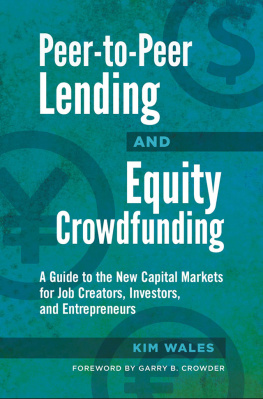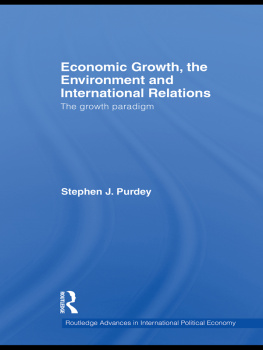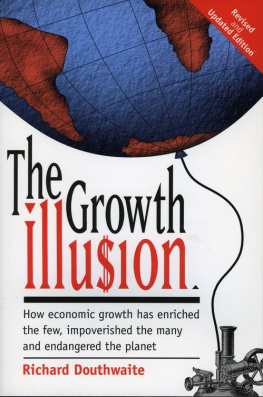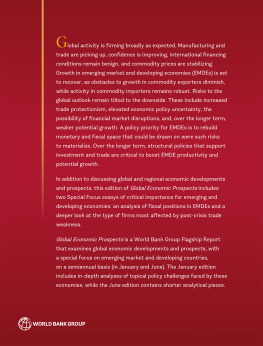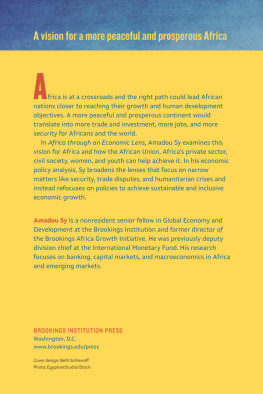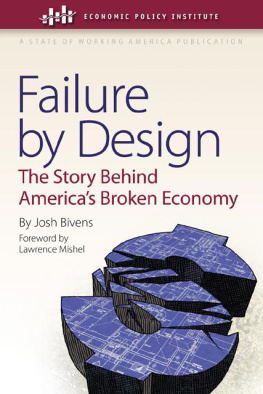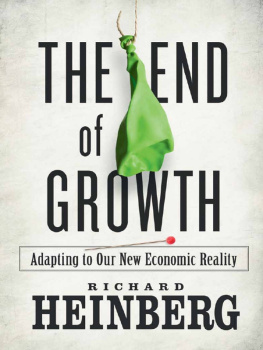
Copyright 2013 School of Policy Studies, Queens University at Kingston, Canada

Publications Unit
Robert Sutherland Hall
138 Union Street
Kingston, ON, Canada
K7L 3N6
www.queensu.ca/sps/
All rights reserved. The use of any part of this publication for reproduction, transmission in any form, or by any means (electronic, mechanical, photocopying, recording, or otherwise), or storage in a retrieval system without the prior written consent of the publisheror, in case of photocopying or other reprographic copying, a licence from the Canadian Copyright Licensing Agencyis an infringement of the copyright law. Enquiries concerning reproduction should be sent to the School of Policy Studies at the address above.
Library and Archives Canada Cataloguing in Publication
Purchase, Bryne Brock, 1944-
Navigating on the Titanic : economic growth, energy, and the failure of governance / Bryne Purchase.
(Queens policy studies series)
Includes bibliographical references.
ISBN 978-1-55339-330-6
1. Economic developmentUnited States. 2. Economic developmentCanada. 3. Power resourcesEnvironmental aspectsUnited States. 4. Power resourcesEnvironmental aspectsCanada. 5. Climatic changesRisk managementUnited States. 6. Climatic changesRisk managementCanada. 7. Industrial policyUnited States. 8. Industrial policyCanada. I. Queens University (Kingston, Ont.). School of Policy Studies II. Title. III. Series: Queens policy studies series
HD3616.U46P87 2013 338.973 C2012-908044-6
Dedication:
Sandra Purchase 19462011
Thanks for everything.
Love always.
Bryne Brock
C ONTENTS
This book is about whether our society, specifically North American society (the United States and Canada), has the decision-making capabilities that would allow it to take pre-emptive action to prevent a crisis. This is not about being blindsided by that which simply cannot be known. But if we can foresee disaster looming, not with certainty but with some reasonably high probability, can we make provisions to alter course in any fundamental way? Simply put, can our private or public institutions be prudent in their behaviournot in what they say, but in what they actually do? Or must we drive forward until the crisis befalls us, before we can act in any material way?
I will argue that our institutions are designed in such a way as to make prudent behaviour highly unlikely.
The review here of the decision-making capabilities of our dominant institutionsmarkets, private corporations, households, and federal governmentshas import for any policy decision. But I will use energy policy issues as my primary example. As we shall see, energybecause of its essential role in human life and its overwhelming scale of use in modern complex civilizationelevates what is being decided upon to a global and existential level. Our entire experience of economic growth under market capitalism, although brief, has been made possible by our access to fossil fuels.
When something goes wrong with our energy supply (including food, which is simply energy fit for human consumption), it has a profound and negative macroeconomic impact on North American society, even though we are also very large energy and food producers. The negative impact increases the more a society depends on importing these vital energy commodities. So some societies are far more vulnerable than our own. If, however, something went horribly wrong, it could rock our now global civilization to its very core. The only question would be whether our institutions could survive the quake still standing. Their very existence would be threatened.
Such global energy-related crises are, in fact, somewhere in our future. There are three that I identify: repeated energy price spikes related to resource depletion; resource wars; and the ultimate problem of radical climate change bringing with it droughts, rising oceans, and more violent storms. These crises are all global in scope and potentially existential in their impact on society. Each is deeply complex; elements of uncertainty are therefore inherent. For example, each could manifest in unanticipated ways or even go viral and spin out of control. While no one can predict when one of these risks will manifest itself as a clear and present danger, there is little scientific doubt that it will happen.
It is as if we were living on the Titanic and rushing headlong into iceberg-infested waters. Our captains know there are icebergs ahead. But they do not know precisely where the icebergs are or how large. And the icebergs could be shrouded in fog, even as we get closer. Can reason and fact be our guide? Could we even slow down? Typically, we like to believe so. Our model in this belief is the enormous success of the physical sciences which are, for the most part, based on reason and fact. Yet, as I will argue, that is not at all how our political marketplace works, nor how some of our most important private institutions work. If our captains have an incentive not to interrupt our contented sleep or our happy partying on their watch, then we will sail relentlessly forward into dangerous waters.
In fact, our society in general is not designed for prudent action. It is designed for economic growthto keep the national growth party and the global growth parade going at any cost. And as for the risk involved in this collective enterprise, we privatize upside reward and socialize downside cost on a wide and pervasive scale. A highly insured society should be a highly regulated society. We, however, offer social insurance even as we deregulate. Both ends of the political spectrum are responsible. Accordingly, this approach is a potentially fatal design flaw in our societal decision-making processes. Economists call it moral hazard. Closely related is the concept of an externality, in this instance a negative externality. Essentially, in risky situations, the key decision makers reap the benefits but do not bear all the costs of their decisions if they turn out badly.
Such a design helps to make our society more dynamic. That is its strength. It has raised our society up out of subsistence living and made possible our current standard of living. But equally it exposes society to potentially catastrophic consequences.
I will argue that this design flaw is everywhere in our society. It is embedded not just in the limited liability and social insurances granted our corporations and households, but also in the operation of our governmental institutions. Our federal governments suffer from systemic weaknesses that give rise to declining public trust. This distrust makes it difficult, if not impossible, for governments to lead on the basis of forecasts. Governments also suffer from a related paralysis brought on by a deep ideological divide operating in the context of a tightly constraining system of political checks and balances. Those checks and balances include the federal structure of North American governments, which reflect profoundly different regional economies and energy resource bases. As a result, all difficult political choices are punted into the futurea future that does not get a vote. The only exceptions are choices made in response to a clear and present danger.
Next page
